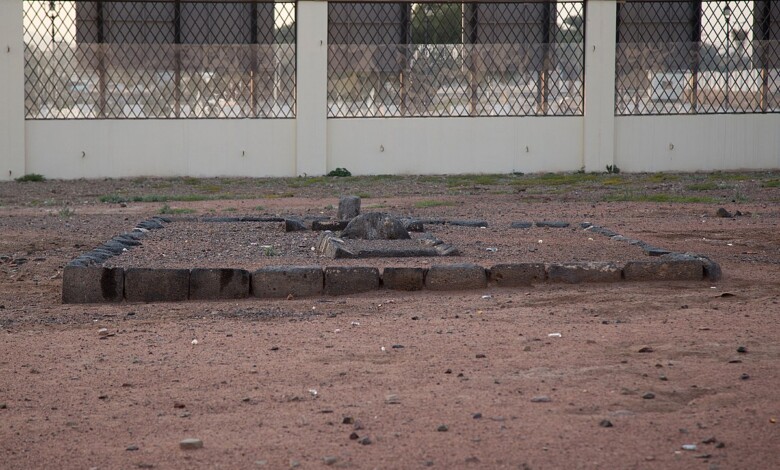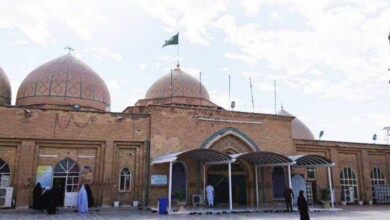Hamza; an uncle, protector and companion of the Prophet

Ḥamza ibn Abdul-Muṭwalib was a foster brother, companion, and paternal uncle of the Islamic prophet Muhammad. He was born around 568 AD in Makkah, thus two years older than Prophet Muhammad (peace be upon him). He was the son of Abdul-Mutwalib ibn Hashim ibn Abdul Manaf. His mother was Hala bint Wuhayb from the Zuhra clan of Quraysh.
Hamza was hence the younger brother of Prophet Muhammad’s father, Abdullah bin Abdul-Mutwalib. Hamza was skilled in wrestling, archery, and fighting. He was fond of hunting lions and was described as “the strongest man of the Quraysh, and the most unyielding.
In the sixth year of Prophet Muhammad’s mission, Hamza accepted the message of Islam. He had gone on a hunting trip in the desert and, upon his return to Makkah, heard that Amr ibn Hisham (Abu Jahl – father of ignorance) had attacked the Prophet (PBUH) and insulted him, speaking spitefully of his religion and trying to bring him into disrepute.
The Prophet did not reply. Filled with rage, Hamza rushed off to the Kaabah, where he found Abu Jahl seated with other elders of the Quraysh. He stood over Abu Jahl and hit him with his bow. He said, “Will you insult [Muhammad], when I am of his religion and say what he says? Hit me back if you can.” He struck Abu Jahl’s head and inflicted a wound.
Hamzah had never said these words before, and they were a shock to everyone, setting the two tribes in a frenzy. Abu Jahl had to admit that he had offended Muhammad. After that incident, Hamza entered the house of Al-Arqam and declared Islam. Hamza’s conversion to Islam excited the Prophet (PBUH) and the Muslims, for in him, they had gained a brave man and a protector. He was feared but very popular with the people of Makkah.
Subsequently, some of the pagans of Makkah abandoned some of their ways of harassing the Prophet (PBUH) and the Muslims, opting instead to try to strike bargains with him; but he did not accept their offers. Prophet Muhammad (PBUH) named him Asadullah (the lion of Allah) because of his strength and skills exhibited in the defense of Islam.
During the Battle of Badr, Hamza shared a camel with Zayd ibn Haritha, and his distinctive ostrich feather made him highly visible. The Muslims blocked the wells at Badr. Hamza killed Al-Aaswad ibn Abdalasad al-Makhzumi. He then killed Utba ibn Rabi’a in single combat and helped Ali to kill Utba’s brother Shayba.
The Muslims’ victory over the pagan Quraysh at Badr did not please the Banu Qaynuqa – a Jewish tribe living in Madinah. They started a campaign of troublemaking aimed at Muslims, jeering at them, harming those who went to their marketplaces, and intimidating Muslim women.
The Prophet (PBUH) warned them, but they challenged him to fight, telling him that he should not be deluded by his defeat of the Quraysh, who were inexperienced in the art of war. Banu Qaynuqa were among those with whom the Prophet (peace be upon him) had made agreements of peace and security, but because of their treachery, Allah sent down a verse: “And if you fear from a people betrayal, throw [their treaty] back to them, [putting you] on equal terms. Indeed, Allah does not like traitors” (Quran, 8:58). Hamza was assigned to carry the banner of Islam in this expedition, which ended with the Banu Qaynuqa’s surrender to the authority of the Messenger of Allah (PBUH).
Hamza was martyred on Saturday, 23 March 625 AD (7 Shawwal 3H), during the Battle of Uhud. He was standing in front of the Prophet when Wahshi ibn Harb, then an Abyssinian slave, killed him. Wahshi had been hired by Hind bint Utba to revenge her father, Utba ibn Rabi’a, whom Hamza had killed at Badr. Hamza was buried at Uhud in the same grave as his nephew Abdullah ibn Jahsh.


